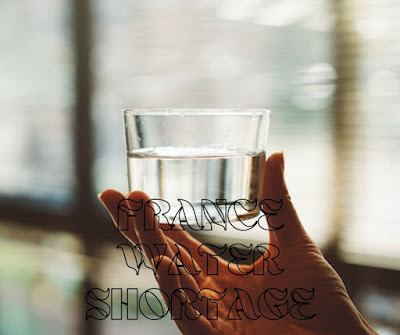The scenario was described as "unprecedented" by the Minister of Ecological Transition, Christophe Béchu.
Over one hundred French communities do not have access to safe drinking water. This was said by Christophe Béchu, who is the Minister of Ecological Transition. He referred to the situation as "unprecedented" in his statement. The minister went on to explain that in some places, "the deliveries are made using tank trucks delivering drinking water since there is nothing left in the pipes." Elisabeth Borne, the Prime Minister, ordered the activation of the inter-ministerial crisis squad.
A rainfall deficit of around 84 percent as compared to the average for the period 1991-2020 was recorded in France during the month of July that just concluded. The month of March 1961 was the driest month ever recorded in France. In addition, since the 17th of July, the United States has been experiencing a "historic drought condition for soil moisture." According to data provided by the French Bureau for Biodiversity and reported by Ouest-France, 27 percent of the rivers found in France are now dry. In the town of Loriol-sur-Drôme, the river was dry for over two kilometers. On July 20th, the volume of water flowing through the Loire River dropped to 129 cubic meters per second (compared to 475 at the beginning of the month). On the 4,400 kilometers that make up the department of Vienne, approximately one thousand kilometers of rivers and streams have dried up. This has had major repercussions for the wildlife and plants that are reliant on these settings.
According to Borne, "this drought is the worst ever documented in our nation," and he also cautioned that "the scenario might persist in the next 15 days, or possibly grow much more concerning." The Prime Minister requested that the Prefects assemble, in each crisis region, "the local water commissioners and, where they exist, the various local consultative mechanisms for water management" in order to determine "the priority of uses in the event that they are required." Continued with Matignon's explanation, limiting measures "have been implemented and will be applied wherever appropriate in order to ensure precedence to health, civic safety, and the supply of drinking water."
The usage of drinking water, for instance, is restricted to no more than two hundred and fifty liters per person on a daily basis in the Pays de Fayence section of the Var region. Even up to 150 gallons may be found in some parts of the community of Seillans. Alternative sources of water are also being exploited to help alleviate the effects of the drought. For example, the city of Gérardmer in the Vosges will be drawing water from its lake to replenish its drinking water network. A temporary saltwater desalination facility has been erected on the island of Groix, which is located in the Atlantic Ocean off the coast of Brittany.
According to data provided by the Ministry of Agriculture in France, the primary user of water in the country is agriculture, which accounts for 45 percent of the total volume of water consumed each year, followed by refrigeration plants (31 percent), drinking water (21 percent), and industrial uses (3 percent). The total volume of water consumed each year in France is estimated to be 5.3 billion cubic meters per year. One of the industries that was hit the hardest by the lack of available water was agriculture. However, nuclear power facilities are also being impacted by the issues, since their cooling systems need significant volumes of water. "This is a worldwide topic that we need to address ourselves: what do we do when we are in a scenario when there is a drought?" But above all else, how can we prevent ourselves from reaching this point? In an interview with the local daily La Provence, Béchu made the following statement.

